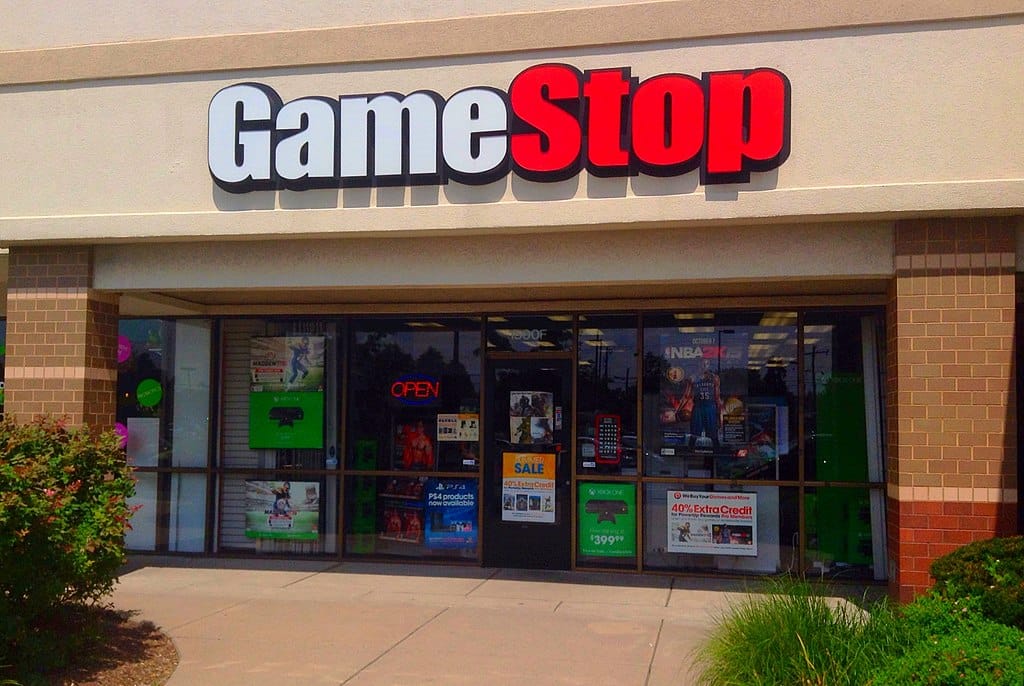meme stock

A meme stock is a publicly traded stock that experiences a sudden rise in value due to a concerted effort by a number of retail investors who organize over social media. The price of a meme stock usually has no relation to actual value of the company in question; they tend to be highly volatile and are often a bubble. The classic example of a meme stock is the brick-and-mortar video game retailer GameStop, whose stock rose some 600 percent in January 2021 due to the efforts of a group of investors organizing on the subreddit r/wallstreetbets.
The term is, of course, a compound of meme + stock.
The earliest examples I have found are on Twitter. This one, in the form of a hashtag, is from 2 May 2017:
$AMD inching towards that $10 mark as the #memestock is down another 2.4% AH after already -24% during the day.
And this one from 13 September 2018:
Every time i look at $AMD i cry a little bit because i was in at $8. And also because it was a memestock that actually blew up after i got out.
Meme stocks are not necessarily shares in companies with little or no value. AMD is an example of a meme stock whose underlying company had sound financial fundamentals, but its value was driven to excessive heights by small investors.
Mainstream journalism began using the term in early 2021 in response to the GameStop phenomenon. The earliest professional use of meme stock that I know of is by Techcrunch.com on 16 January 2021, about a week before the GameStock surge began:
Band 3 is the retail cohort, the /r/WallStreetBets, meme-stock, fintech Twitter rabble that are both incredibly fun to watch and also the sort of person you wouldn’t loan $500 to while in Las Vegas. They are willing to pay nearly infinite money for certain stocks—like Tesla—and often far more than the more conservative public money. Demand from the retail squad can greatly amplify the value of a newly listed company by making the supply/demand curve utterly wonky.
And there is this use in the National Review on 31 January 2021 in the midst of the GameStop bubble:
Robinhood and other brokerages halted trading not due to some shady desire to help Wall Street, but because they could not afford to shoulder the risks their customers were taking. A sizable portion of retail traders’ speculative investments in “meme stocks” were made with money borrowed from brokerages on margin. In response to increased volatility, Robinhood twice issued “margin calls,” decreasing the amount of borrowed money customers were allowed to invest in GameStop—first to 20 percent, then to zero.
There are a couple of older senses of meme stock. The first is one’s collection of internet memes that are ready to deploy at a moment’s notice. The second is a jocular usage that operates on the premise that internet memes can be traded like stocks.
Sources:
Alex @mintauntaun, Twitter.com, 13 September 2018.
“The GameStop Bubble.” National Review, 31 January 2021.
Merriam-Webster.com Dictionary, 16 April 2024, s.v. memestock, n.
North Bluff Capital @bluff_capital, Twitter.com, 2 May 2017.
Wilhelm, Alex. “No One Knows What Anything Is Worth.” Techcrunch.com, 16 January 2021.
Photo credit: Mike Mozart, 2014. Wikimedia Commons. Used under a Creative Commons Attribution 2.0 Generic license.